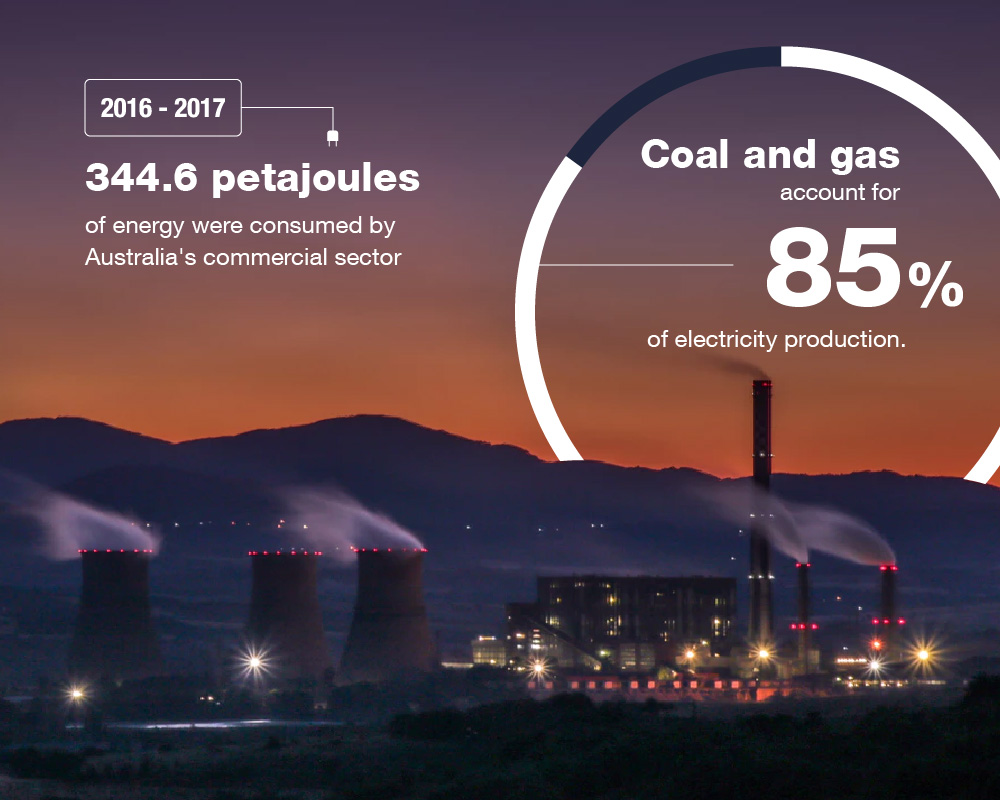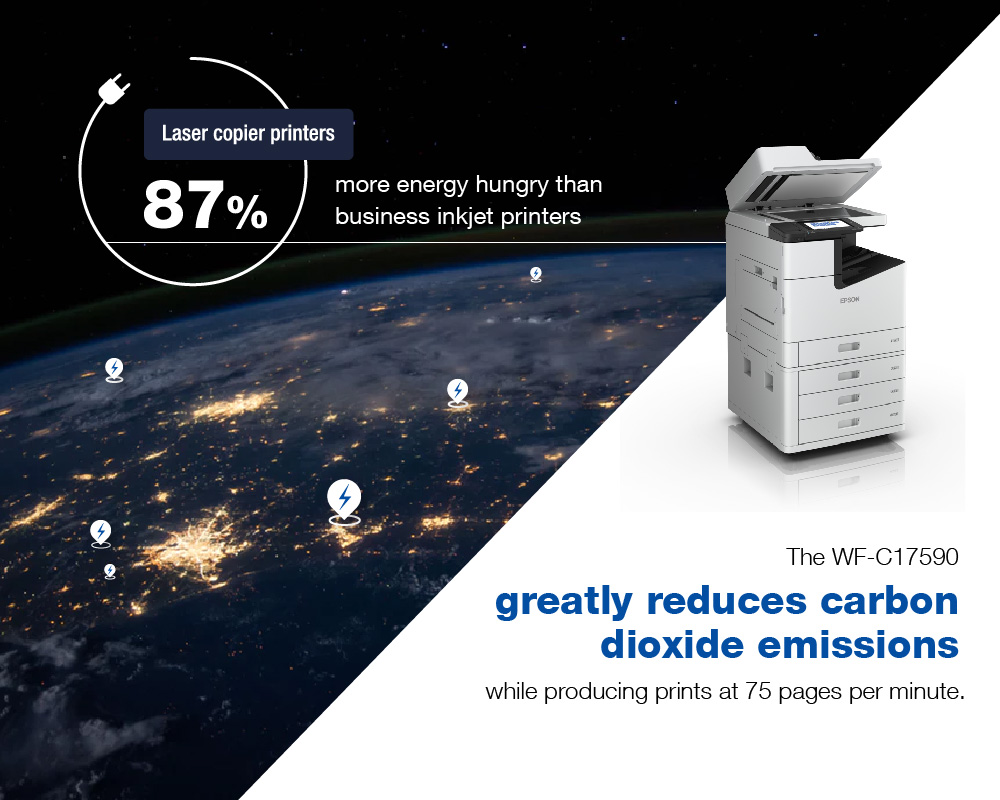
02 Jul,2019
Businesses in 2019 have two choices when it comes to climate change - be part of the problem, or part of the solution.
Look around your office, what do you see? In addition to necessary, but energy intensive, devices such as computers, printers and copiers, chances are you'll have empty meeting rooms with the lights left on and unused TV screens flicking through the same screen savers. This electricity binge quickly adds up, contributing to Australia's continually rising greenhouse gas emissions.
In this article, we'll examine the relationship between commercial electricity use and pollution, where your major energy consumptions are, and how you can make your office more efficient.

Australia's commercial sector consumed 344.6 petajoules (PJ, or a quadrillion joules) of energy between 2016-2017, according to the Department of the Environment and Energy, up 2 per cent from 10 years ago. This statistic puts commercial enterprises above both agriculture and construction in terms of energy usage.
The real problem here from an environmental standpoint comes with the provenance of our energy. Nonrenewable fossil fuels are the source for the vast majority of Australia's energy, with coal and gas accounting for 85 per cent of our electricity production, reports the Department of the Environment and Energy.
Taking this statistic, a quick calculation shows that 292.9 PJ of the electricity used by Australian offices in 2016-2017 came from sources that are directly contributing to global warming. Furthermore, this is a situation unlikely to change in the near future. While renewable energy production is growing in Australia, it will be some time before we can rely on this sector entirely. And this is time the planet simply doesn't have.
The onus, therefore, is on businesses to take the lead by assessing their own practices and establishing where they could cut their electricity use.
For too long, office energy consumption and its polluting results have been an afterthought for businesses. This must change. The first step to becoming a responsible corporate citizen is to identify where all that electricity is being wasted. There are a number of major culprits in this regard.
HVAC systems are responsible for 39 per cent of office electricity use, while lighting is a further 25 per cent (Department of the Environment and Energy). This is exacerbated in offices where air conditioning units and lights are left on over night, or in rooms that are infrequently used.
Modern offices are hubs of technology, with the vast majority of these devices running off mains electricity. Indeed, office equipment accounts for 22 per cent of energy consumption, says the Department of the Environment and Energy.
Printers and copiers
A number of features mean some printers, especially older or heat-based models, can really chew through electricity:
Desktop computers
According to Energy Australia, laptops typically use half the energy of older desktop computers. When you think about how many workstations there are in your office, switching to laptops could mean a serious energy saving.
Changing offices practices has to come from the top and it's up to you to get your team onside. Ultimately, this is the only way you'll be able to successfully reduce your office's pollution levels. Small behaviour shifts such as ensuring all devices are shut down at the end of the day, as opposed to leaving them on standby, will make a big difference to your energy consumption.
Why wait for Earth Day? All Epson products are designed with the environment in mind. https://t.co/oDodbQ5Dsv pic.twitter.com/EOrqcOyX4M
— Epson Australia (@EpsonAust) April 26, 2019

It can be difficult to replace an entire HVAC system, especially if you're only renting your office space. However, investing in green office equipment is a straight forward place to start reducing your office's ecological footprint:
For example, you could exchange your current printer for a model from Epson's WorkForce Enterprise range. The WF-C17590 uses 87 per cent less energy than comparable laser printers, and also greatly reduces carbon dioxide emissions. Despite this, it still has the fastest print speed of printers in its class, producing copy at a rate of 75 pages per minute (ppm).
If you have a say in who provides energy to your office, make the change to renewable sources. This sector is growing, opening up new opportunities for businesses to lead the way in making the likes of hydro, wind and solar more mainstream in the commercial sector.
Ultimately, becoming carbon neutral is what all businesses should strive for. In addition to reducing your own pollution levels, an effective way of achieving this goal is to purchase carbon credits equivalent to the emissions you couldn't cut out.
These credits fund environmental efforts such as planting vegetation or protecting species endangered by our changing climate. In return, your business will have zero net emissions.
As consumer demand for environmentally sensitive companies grows, it's in your best interests, as well as those of the planet, that you don't get left behind.
Security. Speed. Savings. There's no compromise when it comes to upgrading your systems, so why should your printer be any different? Lead the charge with Epson's WorkForce Enterprise at https://t.co/xlKC0XD3fQ pic.twitter.com/CRl92HpYGH
— Epson Australia (@EpsonAust) May 8, 2019
For more information on how Epson can help your business equip itself with printers and copiers that will reduce your office's energy consumption in the longer term, get in touch with our team today to book a demonstration.
Sign up to receive Epson's Latest News, Updates & Exclusive Offers
Welcome to Epson and keep an eye out for our latest updates and exclusive offers.
The webmaster has been notified about the problem.
You are providing your consent to Epson Australia Pty Ltd., so that we may send you emails with regards to interesting news, latest updates and exclusive offers.
You may withdraw your consent or view our privacy policy at any time.
Copyright © 2023 Epson Australia Pty Ltd. All rights reserved. ABN 91 002 625 783 EPNPRWEB03
